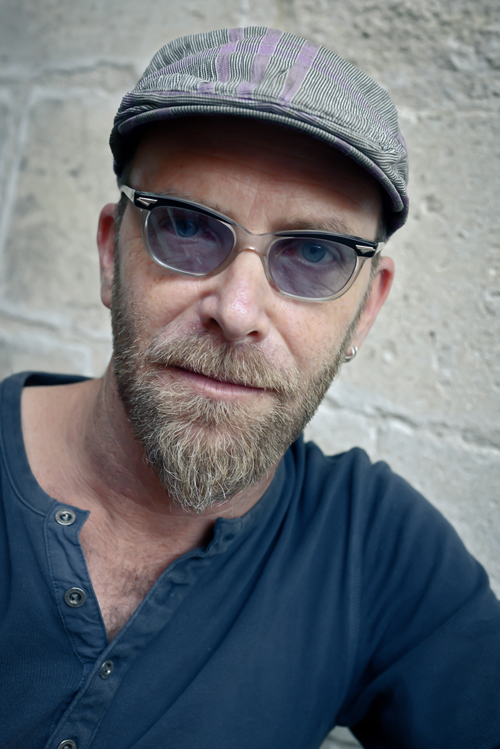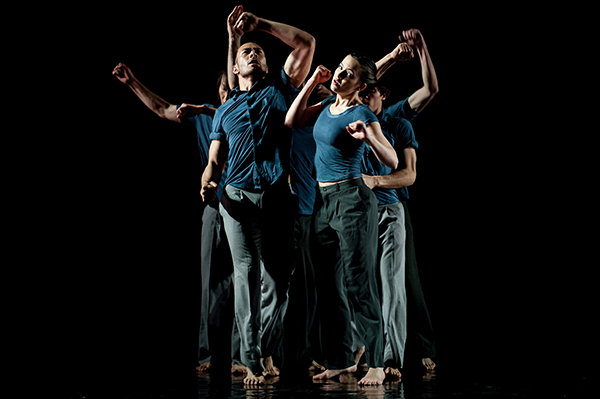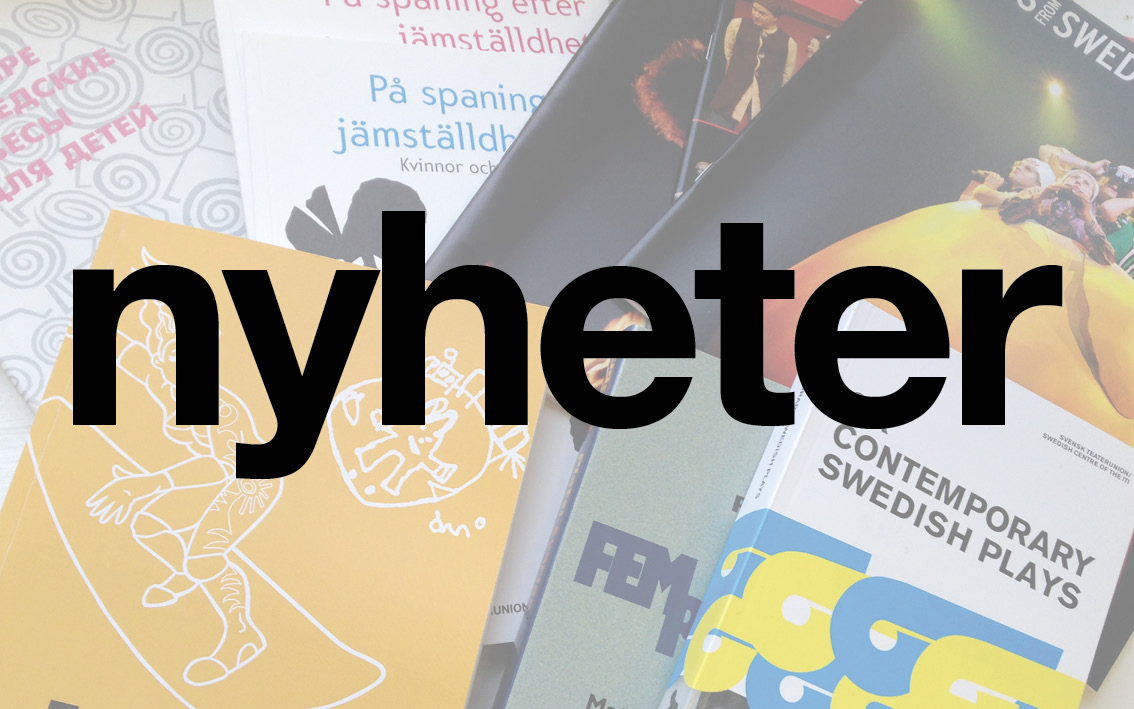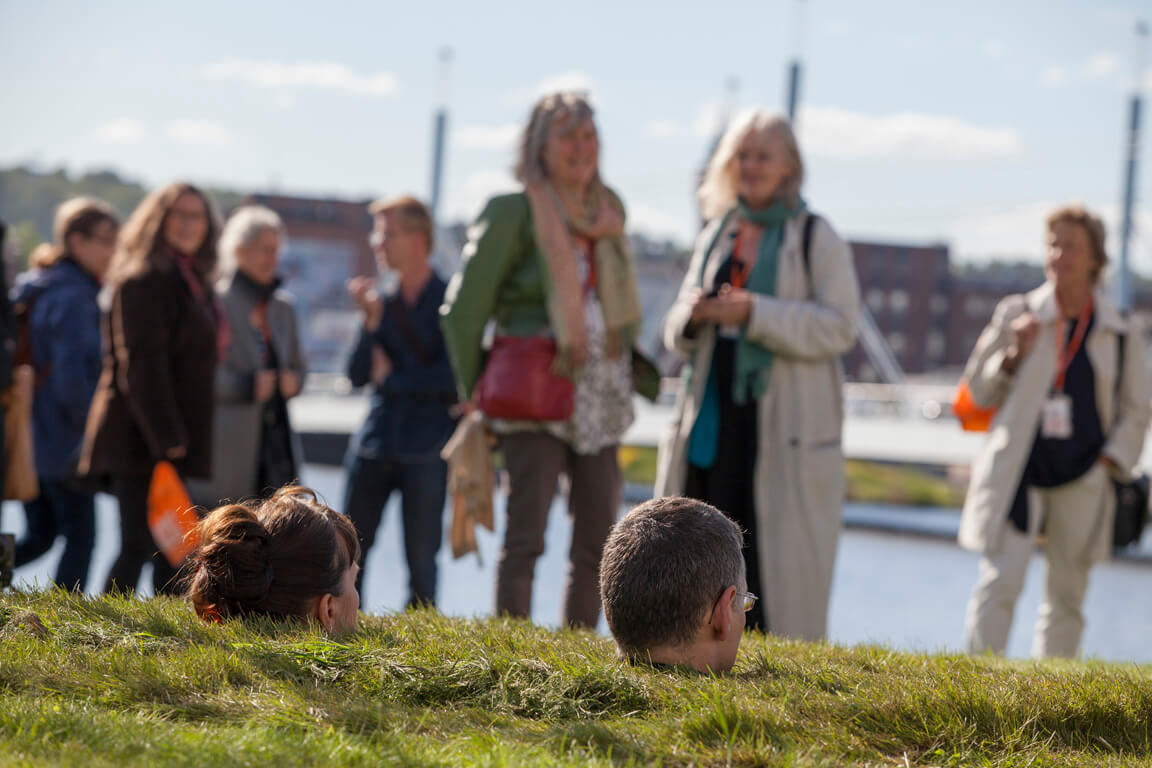World Theatre Day and International Dance Day
You’ll find a press release about the World Theatre Day (27 March) and International Dance Day events (29 April) here.
Festivals
Teaterunionen is the organizer to two festivals; Swedish Biennial for Performing Arts and Swedstage. But there are a number of other festivals in Sweden. You’ll find a list of Swedish and international festivals under the heading NEWS at the top of the site.
Vacation
From the beginning of July, Teaterunionen’s office will closed for vacation, but we work sporadically during these weeks. From the 10th of August, the office will be opened as usual.
We wish you all a nice summer!
ITI Centre Egypt
Dear International Friends and Colleagues:
We, the founding members of the Egyptian Centre of the International Theatre Institute, have been witnessing with increasing alarm the vicious onslaught against the defining foundations of Egyptian culture, with theatre and the performing arts at the forefront. However variously understood and appraised, these foundations are widely believed to have crystallised with the onset of the modern Egyptian State in the late nineteenth century, but in fact they had always been rooted in the very fabric of this land, an inherently cosmopolitan multi-religious and multi-ethnic culture if there ever was one. As Egyptians, but also as members of the global cultural community, we cannot allow such a glorious tradition to suffer erosion at the hands of those who could not adapt to it, whether at home or in the region.
The Islamists’ declared jihad against the arts is currently spearheaded by none other than the regime’s Ministry of Culture, thanks to the recent appointment at its helm of a certain Alaa Abdel-Aziz, an obscure film lecturer with a paltry academic record and practically no professional or public service credentials save his adoption of the cultural discourse of the Muslim Brotherhood ruling faction (or, more aptly, its anti-arts one). In a typical demonstration of this populist rhetoric, Abdel-Aziz had this to say at a recent press conference “I ask those leading the ferocious campaign against me: What have they ever contributed to Egypt’s culture? What have they ever given to the enlightened Egyptian people? Postrevolution Egypt should not be captive to a group that has not been able to effectively touch Egyptians with creativity over long decades.”
While the problem of a certain disconnect between the intelligentsia and their constituencies is by no means unique to Egypt, we believe it is either moronic or hypocritical (or, more likely, both) to question the contributions of generations of artists in the various fields of the performing and fine arts and their far reaching role in establishing and popularising these arts not only in Egypt, but all over the Arab world, not to mention world-renowned literary and artistic figures of the stature of Bahaa Taher, Sonallah Ibrahim, Ramzi Yassa, Alaa Al-Aswany, Lenin El-Ramly, Nawal El-Saadawi, Fatheya El-Assal, and Salwa Bakr, all of whom are now calling for the removal of Abdel-Aziz and the parochial, theocratic regime for which he stands.
The International Theatre Institute, an active UNESCO entity with centres and affiliate bodies in the four corners of the world, has an urgent mission to protect the free circulation of culture in one of this world’s most ancient civilizations. We therefore call upon all concerned to mobilise in whatever way they think fit, but we also hope that this call for action will set in motion an ongoing dialogue with our worldwide friends and colleagues so that we may work with one another against the not-so-secret agenda to remake Egypt and its cultural field after the worldview of its ruling cabal.
We await your ideas and initiatives at egyptcentreiti@gmail.com
Sincerely,
ITI Centre, EGYPT
Interim Founding Board
The Swedish Biennial for Performing Arts
The Swedish Biennial for Performing Arts is over for this time.
Thanks to everyone involved on and behind the stage, students, organizers and participants in workshops, international guests and especially to the audience!
The next Swedish Biennial for Performing Art will take place in Malmö 2015. See you there!
A few days to go
The Swedish Biennial for Performing Arts is organized by Teaterunionen and will take place in Jönköping May 21–26 2013. The host theatre for 2013 is Smålands Musik & Teater.
The Biennial features guest appearances with productions from across Sweden, workshops, seminars and many other opportunities for artistic exchange and dialogue.
Read more anout the Biennial at the website.






